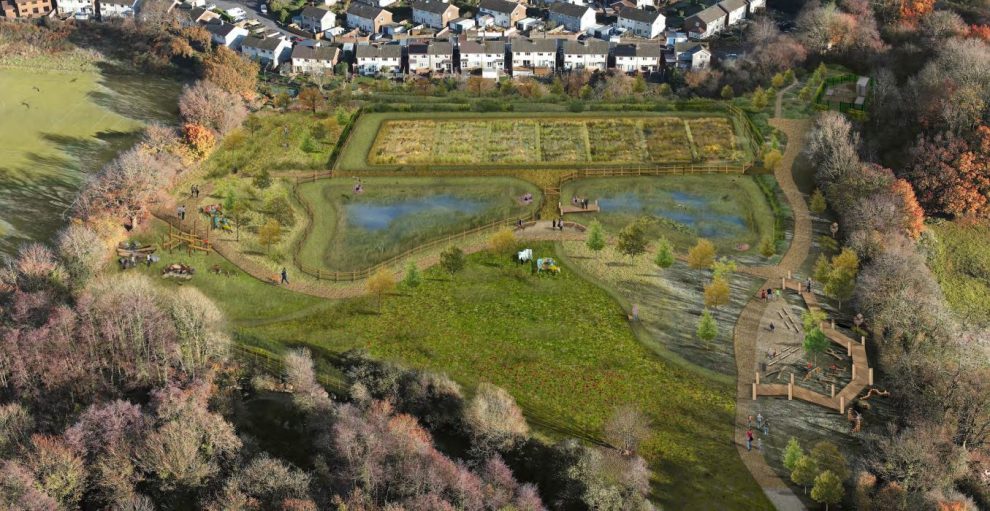A LACK of parking for visitors at a field where wetlands to treat sewage are to be created has raised concerns.
Members of Torfaen Borough Council’s planning committee approved plans by Welsh Water for a ‘nature based solution’ to prevent untreated sewerage from running into the Afon Lwyd at New Inn, Pontypool.
That will see reed beds created and a secondary wetland area on the grounds, where there are public footpaths and used for grazing, for treated water to be released on and pass through before it enters the river.
Permission has also been given to add sculptures, benches, cycle storage areas and improved paths as well as bins on the site along with timber play areas, an educational area with a raised walkway and a compound which would hold a chamber that controls the release of the water.
There will also be a pontoon deck for the public to enjoy views of the larger water basin with the northern water basin, closer to New Panteg Rugby Club’s fields, enclosed by a fence.
Llantarnam independent councillor Alan Slade said he felt issues flagged by the council’s highways department, which was concerned the narrow Pont-Y-Felin access lane, that runs from Lancaster Road, would be blocked by additional vehicles had been overlooked.
“It seems highways have some concerns about vehicle access by the public,” said Cllr Slade.
Planning officer Simon Pritchard said residents living near the site, which is bordered by homes on Afon Close, had objected to visitor parking due to concerns about anti-social behaviour and said the access for Welsh Water vehicles would be gated, which would also be used for invited educational visits likely to be around five a year. Signs will also inform drivers the access road is restricted.
He said: “They are proposing some cycle storage to encourage access but they do not want to encourage additional car movements to the site and they are not proposing to improve the turning head into the site as they do not want to encourage additional vehicle movements.”
Cllr Slade said he wasn’t satisfied with the response and added: “Highways seem to think this will generate additional people wanting to go and see it and I agree. It sounds a fascinating project and I’m sure the public will go there by car. I’m a little bit concerned not enough consideration has been given to that.
“As much as we would like to deter people from visiting by car it’s just storing up problems for the future where people will travel by car and put a strain on local roads.”
Planning officer Huw Roberts said a planning condition requires a plan for how parking during education visits will be managed is provided to the council but said while highways had “concerns” it hadn’t objected and planners concluded they couldn’t require conditions such as parking bays.
He also said the lane isn’t owned by Welsh Water and widening it would have a negative impact on the biodiversity and, in response to a question from Cllr Slade, said there are a number of bus stops within walking distance of the site.
Mr Pritchard said the current combined storm overflow sewer is underground and during heavy storms it releases surface water from New Inn, where there are 3,150 homes, directly into the Afon Lwyd to prevent the sewer network from flooding properties.
Information submitted by Welsh Water showed sewage was dumped into the river on 129 occasions in 2021 and impacted the water quality.
The compound will feature a screening chamber which will divert water to the treatment works at Ponthir with the unscreened water released through the reed bed, which will naturally treat it, and into the wetland areas, a process that will take 10 hours.
There will also be weirs on site to keep the reed beds from drying out during periods when the overflow system isn’t required.
The application was approved unanimously.



















